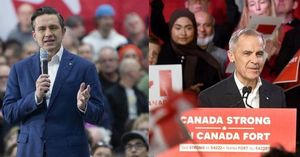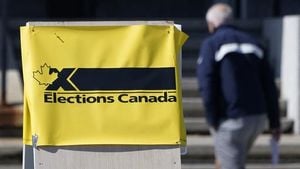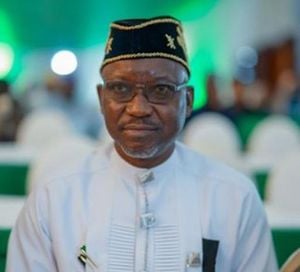On March 21, 2025, Mircea Lucescu, a prominent figure in Romanian football, spoke about the much-debated presence of Valentin Ceaușescu at the Gala Sportului Românesc. The gala, which brought together significant personalities from the world of sports, saw Ceaușescu, the last surviving son of former leader Nicolae Ceaușescu, in attendance, generating mixed reactions within the football community.
At the event, Ladislau Boloni received the esteemed "Legenda Sportului" award from ANS, highlighting his successful career in football. Boloni's recognition serves as a reminder of the rich history and achievements of Romanian football.
Lucescu, who is 79 years old, expressed support for Valentin Ceaușescu, who is 77 years old, emphasizing his contributions to Steaua București, particularly during the club's remarkable journey to winning the UEFA Champions League. Lucescu stated, "I have nothing but words of appreciation for Valentin for what he did for Romanian football. I believe Valentin deserves to participate in such events because he did a tremendous amount for Steaua, which won the Champions Cup. Some of these achievements were at the expense of other teams. Steaua during that time was a team of great reputation from a political standpoint for our country. I consider it absolutely normal (referring to Ceaușescu's participation in the gala), and I have nothing but words of appreciation for Valentin for what he did for Romanian football during that period."
This perspective, however, has not been universally accepted. Following Lucescu's comments, Tudorel Stoica, a legendary figure from the 1980s Steaua București team, also weighed in on the controversy surrounding Ceaușescu's attendance. Stoica, 70, argued that if it wasn't for Valentin Ceaușescu, Romania would not have achieved monumental victories in football, including the Champions League and the European Supercup. He remarked, "If the gentleman Valentin (Ceaușescu) had not been there, Romania would never have a winner of the Champions League, the European Supercup, or even a team that would play in the Champions League final again. He deserved to be there for what he did for Romanian football. Even for the national team. To clarify things. Call Gică Hagi and ask him if someone forced him to come to Steaua."
Stoica's comments add another layer to the complex relationship between football in Romania and the legacy of the Ceaușescu family. His mention of historical context highlights how political influences had a significant impact on the sport. He stated, "There were advantages that other teams did not have, but he supported this extraordinary group of players who brought the Champions Cup to Bucharest. That's why I believe Loți made a gesture of great humanity and friendship." This reflects a sentiment that, despite the controversial figure that Valentin Ceaușescu represents, his contributions to sports cannot be overlooked.
The dialogue around this event not only signifies the ongoing divisions within Romanian football regarding its past but also serves as a microcosm of the broader societal debates about how to reckon with the legacy of the communist regime. As different voices emerge in the football community, it is clear that the memory of the Ceaușescu era is still significant and contentious.
In his statements, Lucescu acknowledged not just the achievements of the club but also the complex dynamics of the era. He affirmed that while Steaua’s success was intertwined with the political climate, the talent of the players was undeniable. He mentioned that "Steaua, during that period, was a team of great reputation from a political standpoint for our country," which is indicative of how intertwined sports were with politics in Romania.
This topic continues to evoke strong feelings, as illustrated by Stoica’s remarks on the need to understand the person before judging them. His defense of Ceaușescu includes a critical reflection on the sport's evolution since the fall of communism: "Discussing a man you don’t know doesn’t help. You must know the individuals before speaking. But what was Dinamo doing? Dinamo, which didn't achieve any performance. Are we dissatisfied because we won the Champions Cup? If he forced Lucescu to leave the country, why did he come to congratulate us?"
As the conversation unfolds, it becomes evident that figures like Valentin Ceaușescu remain pivotal in discussions about Romanian sports history, often stoking debates over nostalgia, legacy, and accountability. While some view his attendance at the gala as a recognition of contributions, others see it as a painful reminder of a past that many would prefer to leave behind.
Ultimately, the Gala Sportului Românesc sits at the intersection of sports and history, embodying the continuing struggle of a nation coming to terms with the complexities of its past. As Romanian football grapples with its identity, the opinions surrounding figures like Valentin Ceaușescu will undoubtedly remain a topic of interest and debate for years to come.




